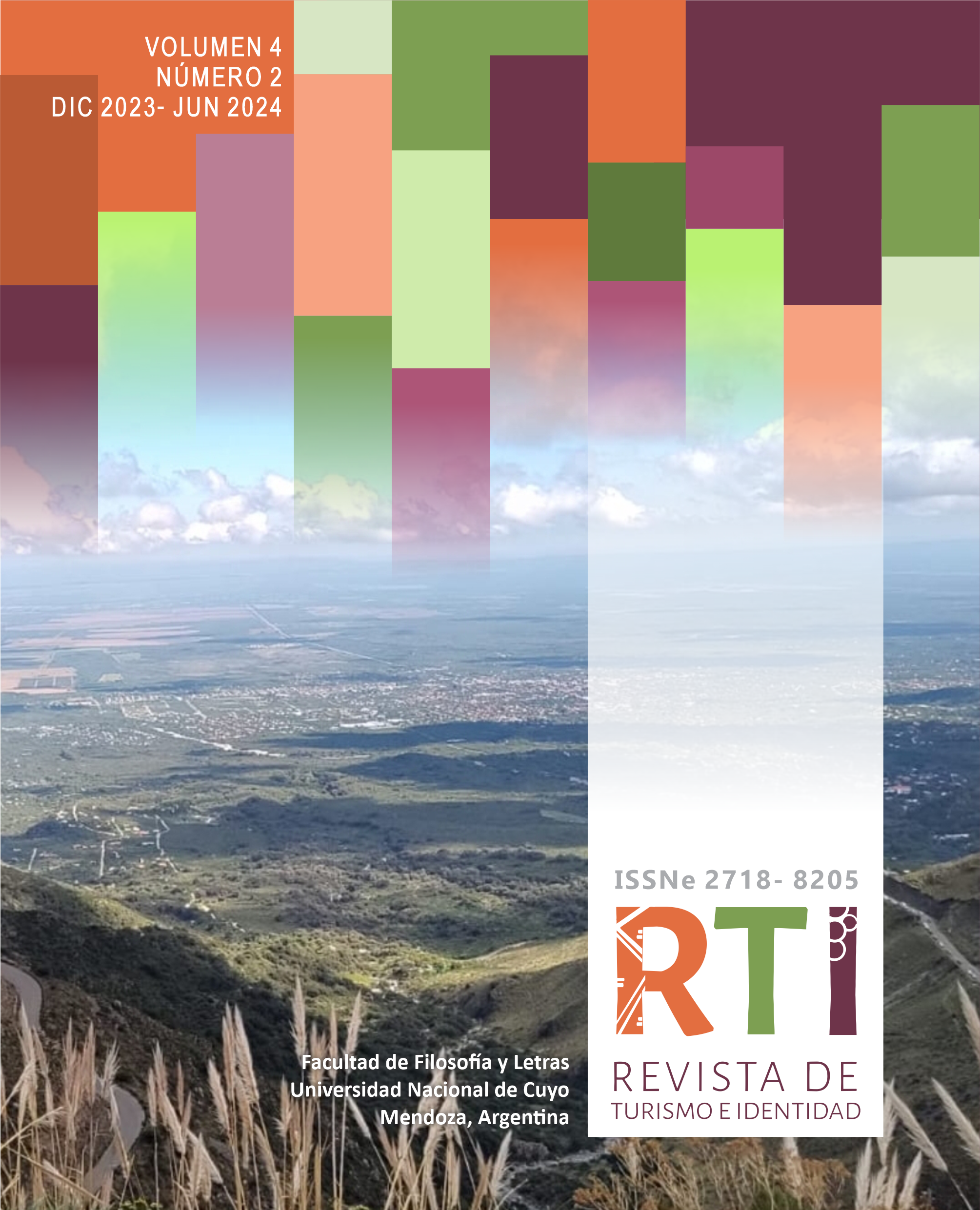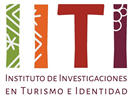Analysis of the possible contributions of hunting tourism. Tourism of special interest to countries: The case of Turkey
Keywords:
hunting tourism, special interest tourism, economy, Turkey, rural tourismAbstract
Hunting tourism is considered a luxury sport and a type of alternative tourism framed in the field of special interest and also in the economic field by providing foreign exchange inputs, in many countries. A type of tourism as important as "hunting tourism" must be applied in an extremely meticulous manner. As a framework to support sustainable tourism, the rules must be followed without exception and pay close attention to the animal population. It should also be noted that hunters coming to Turkey also wish to be included in cultural tourism. In the field of sustainability, this hunting tourism brings an economic benefit due to its income contribution as well as its significant help to the ecological balance.
The aim of this article is to survey the studies conducted on this type of tourism. For this purpose, document analysis was used, first using a qualitative method and then bibliometric analysis. The result determined that most of the studies were carried out by a single author and published in the year 2019, using a qualitative method.
References
Agaliotou, C. (2015). Reutilization of industrial buildings and sites in Greece can act as a lever fot the development of special interest/alternative tourism. Procedia- Social and Behavioral Sciences, 175, p. 291-298.
Akkuş, Ç. y Şimşek, A. (2019). Yöresel Yiyeceklerin Menülerde Yer Alma Düzeyleri: Kastamonu Örneği. (El Nivel de Inclusión de Alimentos Locales en los Menús: El Ejemplo de Kastamonu). 8 th International Vocational Schools Symposium UMYOS’19 SİNOP, 11-13 JUNE 2019.
Alkan, U. M. (2014). Antalya bölgesinde yaban hayatı açısından av turizmi üzerine incelemeler. (Estudios sobre el turismo de caza en términos de vida silvestre en la región de Antalya). Tesis doctoral, Universidad de Kahramanmaraş Sütçü Imam, Kahramanmaraş.
Demir, M. y Caner, A. M. (2016). Alternatif Turizm Kapsamında Av Turizminin Erzincan İli Turizmine Etkisi. (El Efecto Del Turismo De Caza En El Turismo En La Provincia De Erzincan En El Ámbito Del Turismo Alternativo). Uluslararası Erzincan Sempozyumu (28 Eylül-1 Ekim), Bildiriler Kitabı, 2, 983-991, Erzincan.
Douglas, N., Douglas, N. y Derrett, R. (2001). Special interest tourism: Context and cases. John Wiley & Sons Australia.
Duque, P., Meza, O. E., Giraldo, D. y Barreto, K. (2021). Economía Social y Economía Solidaria: un análisis bibliométrico y revisión de literatura.
REVESCO. Revista de Estudios Cooperativos, 138 (e75566), p. 1-25. https://dx.doi.org/10.5209/reve.75566
Ege, Z. (1996). Bir rekreasyon türü olarak av turizmi ve Türkiye’de av turizminin geliştirilmesi ile ilgili bir model önerisi. (Una propuesta modelo relacionada con el turismo cinegético como tipo de recreación y el desarrollo del turismo cinegético en Turquía). Tesis Doctoral, Universidad de Dokuz Eylül, Izmir.
González Arenas, F. J. (2000). La Caza en Córdoba. Caracterización ambiental, económica y social de su gestión y desarrollo. Tesis Doctoral. Facultad de Ciencias, Universidad de Córdoba, España.
Hofer, D. (2002). The lion’s share of the hunt. Trophy hunting and conservation: a review of the legal Eurasian tourist hunting market and trophy trade under CITES. TRAFFIC Europe.
Komppula, R. y Gartner, W. C. (2013). Hunting as a travel experience: an auto-ethnographic study of hunting tourism in Finland and the USA. Tourism Management, 35, p. 168-180. https://doi.org/10.1016 /j.tourman.2012.06.014
Korkmaz, M. (2001). Orman Kaynaklarında Doğa Turizmi ve Av Turizmi Etkinliklerinin Ekonomik Çözümlemeleri. (Análisis Económico de las Actividades de Turismo de Naturaleza y Turismo Cinegético en Recursos Forestales). Tesis, Universidad de İstanbul, İstanbul.
Mulero Mendigorri, A. y Naranjo Ramirez, J. (1995). Caza y Desarollo Rural en la montaña Andaluza: fuentes actuales para su estudio. Actas del VIII COLOQUIO DE GEOGRAFíA RURAL. Jaca, 11, 12, 13 y 14 de junio.
Olcay, A., Dağlıoğlu, T. y Sürme, M. (2019). Turistleri av turizmine yönelten nedenlerin belirlenmesine yönelik araştırma. (Una investigación dirigida a determinar las razones que llevan a los turistas al turismo cinegético). Journal of Recreation and Tourism Research, 6 (3), p. 285-293. https://doi.org/10.31771/ jrtr.2019.31
Ormaza Cevallos, M. G. y Guerrero-Baena, M. D. (2021). Gestión de calidad y crecimiento empresarial: Análisis bibliométrico. Revista Venezolana de Grencia, 26(93), p. 318-333.
Özer, O. (2015). Av Turizmi ve Görsel Medya: Yaban TV’nin Türkiye’deki Yerli Turist Avcıların Tutumlarına Yönelik Etkileri. (Turismo De Caza Y Medios Visuales: Los Efectos De Yaban Tv En Las Actitudes De Los Cazadores Turísticos Nacionales En Turquía). Tesis, Universidad de İzmir Katip Çelebi, İzmir.
Özer, O. (2019). Türkiye’nin Av Turizmi Potansiyeli Konusunda Bir Değerlendirme. (Una Evaluación Del Potencial Del Turismo Cinegético De Turquía). Journal of Gastronomy, Hospitality and Travel (JOGHAT), 3(1), 71-86
Radder, L. y Bech-Larsen, T. (2008). Hunters' motivations and values: A South African perspective. Human Dimensions of Wildlife, 13(4), 252-262. Doi: 10.1080/10871200801986739
Rojek, C. y Urry, J. (1997). Touring cultures.Transformations of Travel and Theory. Routledge.
Şafak, İ. (2003). Türkiye’deki av turizmi uygulamalarının özel avlak işletmelerine etkileri (Los efectos de las prácticas de turismo de caza en las empresas privadas de caza en Turquía). Süleyman Demirel Üniversitesi Orman Fakültesi Dergisi, A (2), p. 133-148.
Schroeder, S. A., Fulton, D. C. y Lawrence, J. S. (2006). Managing for preferred hunting experiences: a typology of Minnesota waterfowl hunters. Wildlife Society Bulletin, 34(2), p. 380-7.
Şen, Ö. (2020). Bibliyometrik Analiz Yöntemi ile Ağızdan Ağıza İletişim (Wom) Konusunun İncelenmesi. (Investigación del Tema de la Comunicación el Boca-oreja o WOM (Word of Mouth) por Método de Análisis Bibliométrico). International Social Sciences Studies Journal, 6(54), p. 1-10. https://doi.org/10. 26449/sssj.1919
Shrestha, H. P. y Shrestha, P. (2012). Tourism in Nepal: A Historical Perspective and Present Trend of Development. (Turismo en Nepal: Una Perspectiva Histórica y Tendencia Actual de Desarrollo). Himalayan Journal of Sociology and Anthropology 5, 54-75. https://doi:10.3126/hjsa.v5i0.7039
Tabares, J. H., Jaramillo, J. C., Arias, M. B. y Arias, A. V. (2017). Tendencias en la investigación sobre gestión del riesgo empresarial: un análisis bibliométrico. Revista Venezolana De Gerencia, 22(79), p. 506-520.
Tangeland, T., Aas, Ø. y Odden, A. (2013). The socio-demographic influence on participation in outdoor recreation activities - Implications for the Norwegian domestic market for nature-based tourism. Scandinavian Journal of Hospitality and Tourism, 13(3), 190-207. Doi: 10.1080/15022250.2013.819171.
Trauer, B. (2006). Conceptualizing special interest tourism- frameworks for analysis. Tourism management, 27(2), p. 183-200. https://doi.org/10.1016/j. tourman.2004.10.004
T. C. Tarım ve Orman Bakanlığı Doğa Koruma ve Milli Parklar Genel Müdürlüğü. (2022). Yaban Hayatı İstatistikleri. (Estadísticas de Vida Silvestre). Recuperado de: https://www.tarimorman.gov.tr/DKMP/ Menu/19/Yaban-Hayati-Istatistikleri [Consultado el 07 de julio de 2022].
T. C. Tarım ve Orman Bakanlığı. (2022). Yaban Hayatı İstatistikleri. (Estadísticas de Vida Silvestre). Recuperado de: https://www.tarimorman.gov.tr/DKMP/Menu/19/Yaban-Hayati-Istatistikleri, 2021 [Consultado el 04 de octubre de 2022).
Ulusoy, H. (2015). Av Turizminin Kırsal Turizm Açısından Kırsal Kalkınma Üzerindeki Etkisinin İrdelenmesi. (Investigación del Impacto del Turismo Cinegético en el Desarrollo Rural en términos de Turismo Rural). Türk Bilimsel Derlemeler Dergisi, 8(2), 74-80
Ulusoy, H. (2016). Muğla İli Av Turizminin İlin Ekonomisi ve Kırsal Kalkınması Üzerindeki Etkisinin İrdelenmesi. (Una investigación del Impacto del Turismo de Caza en la Economía y el Desarrollo Rural de la provincia de Muğla). Uluslararası Sosyal ve Ekonomik Bilimler Dergisi, 6(2), p. 52-57.
Vázquez, C. (2012). Valores y percepciones de la caza entre los cazadores españoles. Tesis de Maestría inédita. Instituto de Investigación en Recursos Cinegético, Universidad de Castilla La Mancha, España.
Walle, A. H. (1997). Pursuing risk or insight: marketing adventures. Annals of Tourism Research, 24, p. 265–282.
Downloads
Published
How to Cite
Issue
Section
License

This work is licensed under a Creative Commons Attribution-NonCommercial-ShareAlike 4.0 International License.
Quienes envíen trabajos a la Revista de Turismo e Identidad, que edita el Instituto de Investigaciones en Turismo e Identidad (IITI) de la Facultad de Filosofía y Letras de la Universidad Nacional de Cuyo (Mendoza, Argentina), otorgan automáticamente licencia no exclusiva y sin límite temporal de su manuscrito a dicha publicación. En consecuencia, como la distribución de la citada Revista no tiene finalidad lucrativa sino académica, el autor (los autores) autoriza(n) a la misma la difusión gratuita en formato impreso y medios electrónicos, tanto en red local como por vía internet.
Se establece que:
- Los/as autores/as conservarán sus derechos de autor y garantizarán a la revista el derecho de primera publicación de su obra.
- Los/as autores/as deben adherir a la Licencia Creative Commons Atribución-NoComercial-CompartirIgual 4.0 Internacional, a menos que se indique lo contrario, mediante la cual el autor permite copiar, reproducir, distribuir, comunicar públicamente la obra sin propósitos comerciales, por cualquier medio o formato. También, se pueden generar nuevas obras derivadas, siempre y cuando se cite y reconozca al autor original y su primera publicación en esta revista.
- Los/as autores/as podrán adoptar otros acuerdos de licencia no exclusiva de distribución de la versión de la obra publicada (p. ej.: depositarla en un archivo telemático institucional o publicarla en un volumen monográfico) siempre que se indique la publicación inicial en esta revista.
- Se permite y recomienda a los/as autores/as difundir su obra a través de Internet (p. ej.: en archivos telemáticos institucionales o en su página web) luego de su publicación, lo cual puede producir intercambios interesantes y aumentar las citas de la obra publicada. (Véase El efecto del acceso abierto).

















